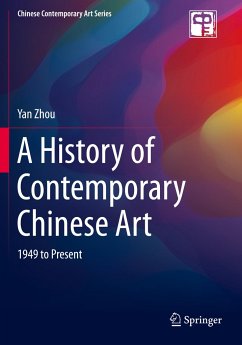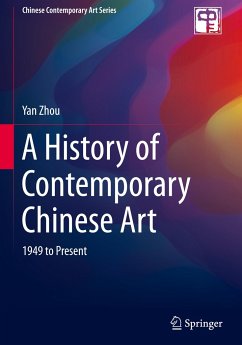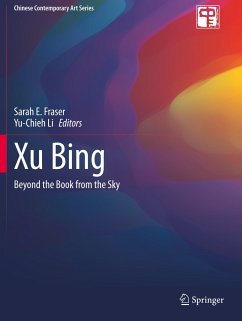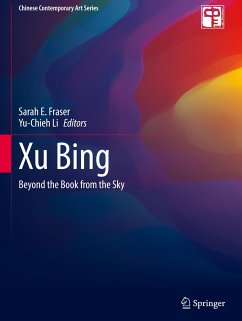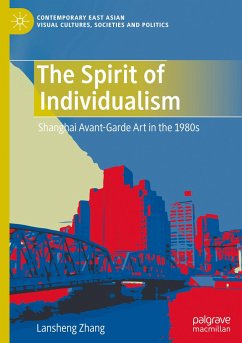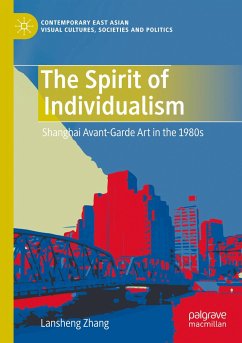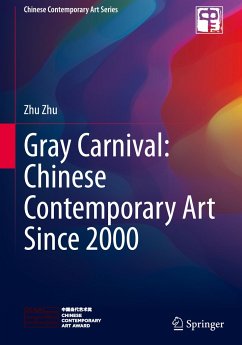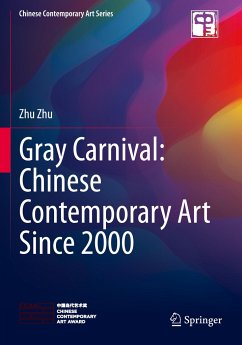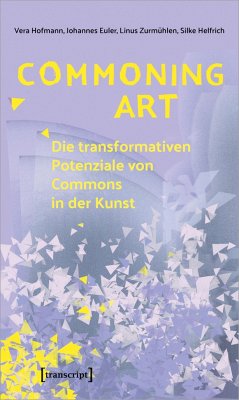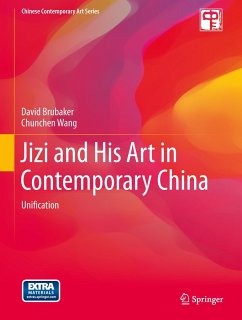
Jizi and His Art in Contemporary China
Unification
Versandkostenfrei!
Versandfertig in 6-10 Tagen
38,99 €
inkl. MwSt.
Weitere Ausgaben:

PAYBACK Punkte
19 °P sammeln!
This interdisciplinary study promotes the thesis that some contemporary Chinese ink artists succeed in using principles of traditional Chinese aesthetics to convey the union of self with nature, others and the universe. The investigation is a case study of the writings and paintings of Jizi, an ink-wash artist in Beijing, who combines images of icy mountains, Tibetan landscapes, cosmic vistas, and enclosures of personal existence. Jizi's success in expressing the unification of these dimensions is confirmed by developing and applying an interpretation of Jing Hao's classic description of the a...
This interdisciplinary study promotes the thesis that some contemporary Chinese ink artists succeed in using principles of traditional Chinese aesthetics to convey the union of self with nature, others and the universe. The investigation is a case study of the writings and paintings of Jizi, an ink-wash artist in Beijing, who combines images of icy mountains, Tibetan landscapes, cosmic vistas, and enclosures of personal existence. Jizi's success in expressing the unification of these dimensions is confirmed by developing and applying an interpretation of Jing Hao's classic description of the authentic image, which resonates with the vitality of nature. To find words for resonance with visible nature, the inquiry extends to such writers as Li Zehou, Arthur Danto and Maurice Merleau-Ponty. In short, an account of authenticity in Chinese ink painting is offered experimentally as a means for assessing whether contemporary Chinese artworks are expressive of Chinese philosophy andculture. The text includes stylistic comparisons with artists such as E.C. Escher, Guo Xi, Jia Youfu, Liu Guosong, Rene Magritte, Piet Mondrian, and Xu Bing. The result is an appreciation of the healing influence of Chinese ink art in a global culture that is vibrant, complex, diverse and affirming of the present.
In this rigorous, far-reaching, and original analysis of contemporary ink art painting, Brubaker and Wang focus our attention on the work of one independent painter, Jizi, whose work exemplifies an uncanny marriage between ink art and contemporary concerns. In the central chapters, Brubaker persuasively argues that in this work Jizi captures principles essential to traditional Chinese aesthetics articulated in terms of wholeness, emptiness, and visibility that enable the works to express the unification of the self with nature and the universe as a whole. It does this through forms that are innovative and part of artistic practices and discourses that are becoming increasingly global.
Mary Wiseman,
The City University of New York
This important publication focuses on the evocative ink wash paintings of an artist who has, over the course of decades, demonstrated an unwavering commitment to exploring the technical, formal, philosophical and experiential dimensions of his chosen medium. The essays, commentaries and critical reflections collected in this volume present unique perspectives on Jizi's practice, significantly contributing to the growing body of scholarship on the continuing vitality of the ink wash tradition in the global contemporary.
Dr. Wenny Teo,
The Courtauld Institute of Art
Through an in-depth study of the ink painting practice of contemporary Chinese artist Jizi, the authors discover Chinese ink painting's philosophical perspectives, cosmic foundations, and contemporary possibilities. They also uncovered a way to enter into the artist's rich and profound spiritual world; through Jiazi's expansive visual patterning and refined spiritual imagery, he activates a long and great cultural tradition.
Yu Yang,
Central Academy of Fine Arts
In this rigorous, far-reaching, and original analysis of contemporary ink art painting, Brubaker and Wang focus our attention on the work of one independent painter, Jizi, whose work exemplifies an uncanny marriage between ink art and contemporary concerns. In the central chapters, Brubaker persuasively argues that in this work Jizi captures principles essential to traditional Chinese aesthetics articulated in terms of wholeness, emptiness, and visibility that enable the works to express the unification of the self with nature and the universe as a whole. It does this through forms that are innovative and part of artistic practices and discourses that are becoming increasingly global.
Mary Wiseman,
The City University of New York
This important publication focuses on the evocative ink wash paintings of an artist who has, over the course of decades, demonstrated an unwavering commitment to exploring the technical, formal, philosophical and experiential dimensions of his chosen medium. The essays, commentaries and critical reflections collected in this volume present unique perspectives on Jizi's practice, significantly contributing to the growing body of scholarship on the continuing vitality of the ink wash tradition in the global contemporary.
Dr. Wenny Teo,
The Courtauld Institute of Art
Through an in-depth study of the ink painting practice of contemporary Chinese artist Jizi, the authors discover Chinese ink painting's philosophical perspectives, cosmic foundations, and contemporary possibilities. They also uncovered a way to enter into the artist's rich and profound spiritual world; through Jiazi's expansive visual patterning and refined spiritual imagery, he activates a long and great cultural tradition.
Yu Yang,
Central Academy of Fine Arts





